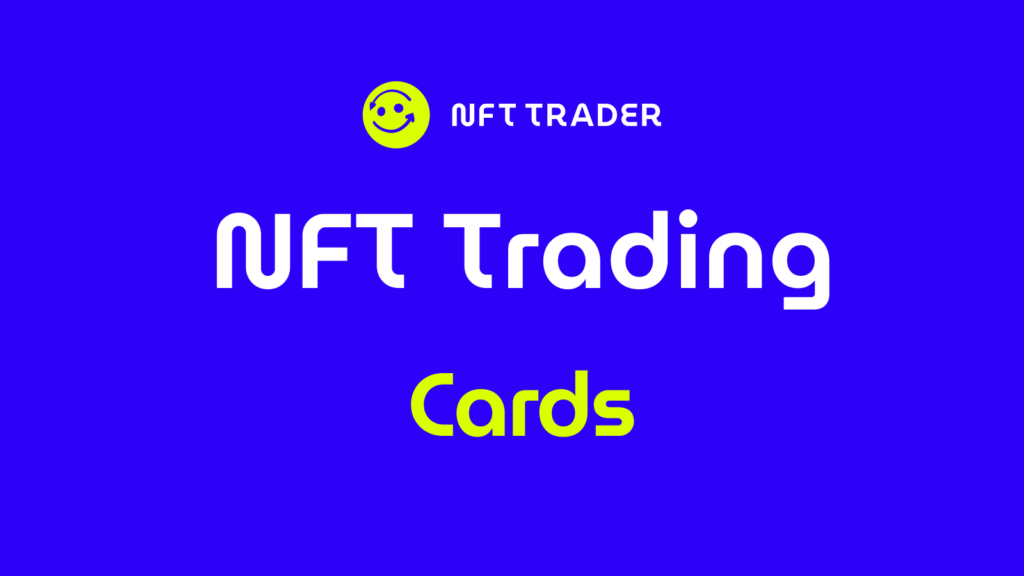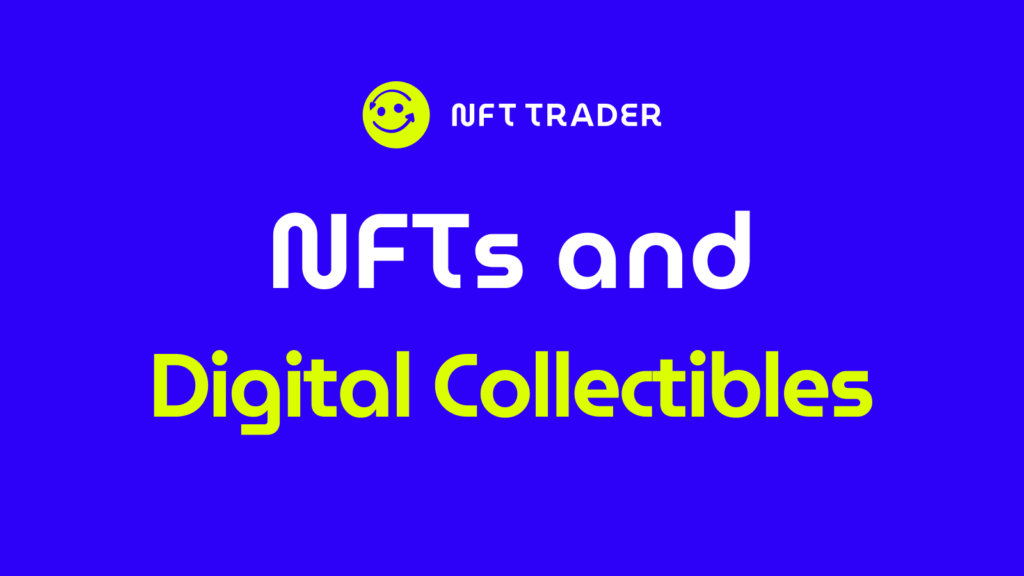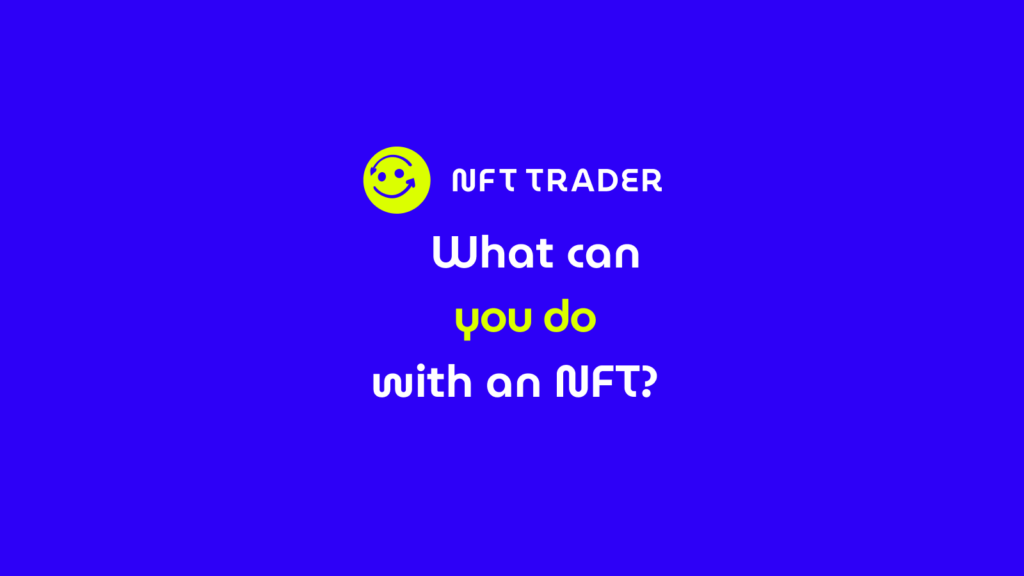The Rise of NFT Trading Cards: What You Need to Know

NFT trading cards have revolutionized the collectibles market by introducing digital ownership, scarcity, and a direct connection between creators and collectors. These blockchain-based assets ensure authenticity and provenance, catering to a global audience, and allowing for easy trading and interoperability across platforms. The concept of digital collecting has gained traction, appealing to a new generation of collectors who value virtual ownership, while also offering gamification features and utility within virtual worlds. As a result, NFT trading cards hold immense significance in reshaping the traditional collectibles landscape, offering a unique and transformative approach to ownership and value in the digital age.
What is an NFT trading card?
NFT trading cards, or Non-Fungible Token trading cards, represent a novel and digital form of collectible items. They are unique digital assets that utilize blockchain technology to verify their authenticity and ownership. Unlike traditional trading cards that are physical and often mass-produced, NFT trading cards are one-of-a-kind or limited-edition digital tokens, each with a distinct digital signature. This uniqueness is what makes them non-fungible, meaning they cannot be exchanged on a one-to-one basis with other tokens, as each NFT trading card has its own intrinsic value and cannot be replicated or replaced.
The revolution brought about by NFT technology in the concept of trading cards is primarily centered on uniqueness and ownership:
- Digital Uniqueness: NFT trading cards are created as unique digital assets with specific attributes, such as artwork, stats, or other collectible characteristics. Each card’s data is stored on a blockchain, ensuring that it cannot be duplicated or counterfeited, a problem often faced in the physical trading card market.
- Provenance and Ownership: Blockchain technology provides an immutable ledger of ownership for NFT trading cards, which means that the entire history of a card’s ownership can be tracked, verified, and publicly viewed. This ensures that collectors can confidently prove their ownership and the card’s authenticity.
- Scarcity and Rarity: NFT trading cards can be issued with specific scarcity rules, such as limited editions or unique traits, enhancing their rarity and desirability. Collectors are drawn to the rarity of these digital cards, as it mirrors the appeal of rare physical trading cards.
- Direct Creator Engagement: NFTs enable creators, whether they are artists, athletes, or content creators, to directly produce and distribute their trading cards to a global audience without the need for intermediaries. This direct connection between creators and collectors fosters a more personalized and engaging collectible experience.
In essence, NFT trading cards leverage blockchain technology to redefine the concept of trading cards by emphasizing their uniqueness, verifiable ownership, and direct creator involvement. This revolutionizes the collectibles market, offering collectors a digital alternative that combines the traditional appeal of collecting with the advantages of digital ownership and scarcity.
How does NFT trading cards work?
- Rarity and Uniqueness: The scarcity of NFT trading cards, whether through limited editions or unique traits, is a primary driver of their value. Collectors are drawn to cards that are rare and hard to find, as they hold a sense of exclusivity and rarity, often commanding higher prices in the market. The concept of limited supply and distinct features enhances their desirability.
- Creator and Popularity: The reputation and popularity of the creator behind an NFT trading card can significantly influence its value. Cards associated with well-known artists, athletes, or influencers tend to attract more attention and higher bids. Collectors often seek a personal connection with the creator, making cards from beloved figures more valuable.
- Utility and Community: Some NFT trading cards offer practical utility within virtual worlds, games, or digital platforms, adding tangible value beyond collectibility. Additionally, the strength of the community or fandom surrounding a particular creator, franchise, or subject matter can enhance the card’s value. Collectors who share a common passion or interest may place a premium on cards that resonate with their personal preferences, fostering a sense of community-driven value.
In essence, the value of NFT trading cards is a complex interplay of rarity, creator appeal, utility, historical significance, aesthetic qualities, and community engagement. Collectors assess these factors to determine the worth of these digital collectibles in a rapidly evolving and dynamic market.
Benefits of trading card NFTs
- True Ownership: NFT trading cards provide verifiable and immutable ownership records on the blockchain, ensuring collectors have true ownership of their digital assets.
- Provable Scarcity: NFTs can be programmed with specific scarcity rules, creating a clear and provable rarity for trading cards, which often drives up their value.
- Engagement: NFTs foster direct engagement between creators and collectors, allowing for a more personalized and interactive collecting experience.
- Interoperability: NFT trading cards can be easily traded and used across different platforms and marketplaces, providing collectors with greater flexibility and liquidity.
- Global Reach: NFTs have a global audience, enabling collectors from around the world to participate in the market, leading to increased competition for valuable cards.
- Digital Collecting: In an increasingly digital world, NFT trading cards cater to the preferences of digital natives who value virtual ownership and online display of their collections.
- Provenance and Authenticity: Blockchain technology ensures the authenticity and provenance of NFT trading cards, reducing the risk of counterfeit or fraudulent collectibles.
- Utility: Some NFT trading cards offer practical utility within virtual worlds, games, or digital ecosystems, enhancing their desirability and usefulness.
- Direct Creator Engagement: NFTs enable creators to directly monetize their work and engage with their fan base, cutting out intermediaries and capturing more value from their collectibles.
These benefits collectively make NFT trading cards a unique and valuable addition to the collectibles market, blending traditional collecting with the advantages of digital ownership and interaction.
NFT trading cards: Use Cases
- Collection and Display: NFT trading cards are often collected and displayed in digital galleries or collections, allowing collectors to showcase their unique and rare cards in an online environment.
- In-Game Use: Some NFT trading cards have utility within virtual worlds and online games, where they can be used to unlock special features, characters, or items, enhancing the gaming experience.
- Creator Monetization: Creators, such as artists, athletes, and content producers, use NFT trading cards to monetize their work directly by selling unique or limited-edition digital collectibles to their fan base.
- Digital Memorabilia: NFT trading cards associated with historical events or iconic moments serve as digital memorabilia, allowing collectors to own a piece of history in a digital format.
- Fandom and Community Building: NFT trading cards related to specific franchises, characters, or influencers help build and strengthen fan communities, fostering a sense of belonging and engagement.
- Virtual Events and Conventions: NFT trading cards are sometimes used as exclusive access passes or digital tickets to virtual events, conventions, or meet-and-greets with creators and celebrities.
- Ownership Verification: NFT trading cards provide a secure and verifiable way to prove ownership and authenticity of digital assets, which is important for collectors and creators alike.
- Digital Art and Collectibles: NFT trading cards can represent digital art pieces or collectibles, offering a new way for artists to create and sell their digital creations as unique or limited-edition tokens.
- Cross-Platform Integration: Some NFT trading cards are designed to work seamlessly across different platforms, allowing collectors to use them in various virtual environments and games, further enhancing their utility.
These use cases highlight the versatility and appeal of NFT trading cards, which extend beyond traditional collecting into digital interaction and engagement across a wide range of digital ecosystems.
Notable NFT trading card projects
Prominent NFT trading card projects and platforms have emerged as key players in the rapidly growing NFT space. Leading the way is NBA Top Shot, a collaboration between the NBA and Dapper Labs, offering officially licensed basketball highlights as NFT trading cards. With a thriving marketplace and a passionate collector community, NBA Top Shot has set the standard for sports-related NFTs. Another notable project is CryptoKitties, one of the earliest NFT-based games, where players collect, breed, and trade unique digital cats. On the art front, CryptoPunks has gained immense recognition for its collection of 10,000 unique, algorithmically generated 24×24 pixel art characters. Additionally, Art Blocks has pioneered generative art NFTs, allowing artists to create programmatically generated visual pieces. These projects and platforms, among many others, have demonstrated the diverse and innovative potential of NFT trading cards across sports, gaming, art, and entertainment, shaping the evolving landscape of digital collectibles.
In addition to the aforementioned projects, the Ethereum-based trading card game, “Gods Unchained,” has gained significant traction in the NFT space. Combining elements of traditional trading card games with blockchain technology, Gods Unchained allows players to collect, trade, and battle with unique digital cards that are stored as NFTs on the Ethereum blockchain. The game has attracted a dedicated player base and hosts regular tournaments with substantial prize pools. This fusion of gaming and NFTs showcases the potential for NFT trading cards to provide not only collectibility but also gameplay experiences, further expanding the horizons of the NFT ecosystem.
Furthermore, the world of NFT trading cards has seen the emergence of platforms like Sorare, which focuses on fantasy football, allowing users to collect and trade officially licensed digital cards of soccer players to use in fantasy football leagues. Moreover, Decentraland has introduced NFT wearables and accessories that users can use to personalize their avatars in the virtual world. These platforms underscore the versatility of NFT trading cards, extending their appeal into the realms of sports, virtual reality, and interactive gaming, further enriching the NFT ecosystem with diverse and engaging collectible experiences.


